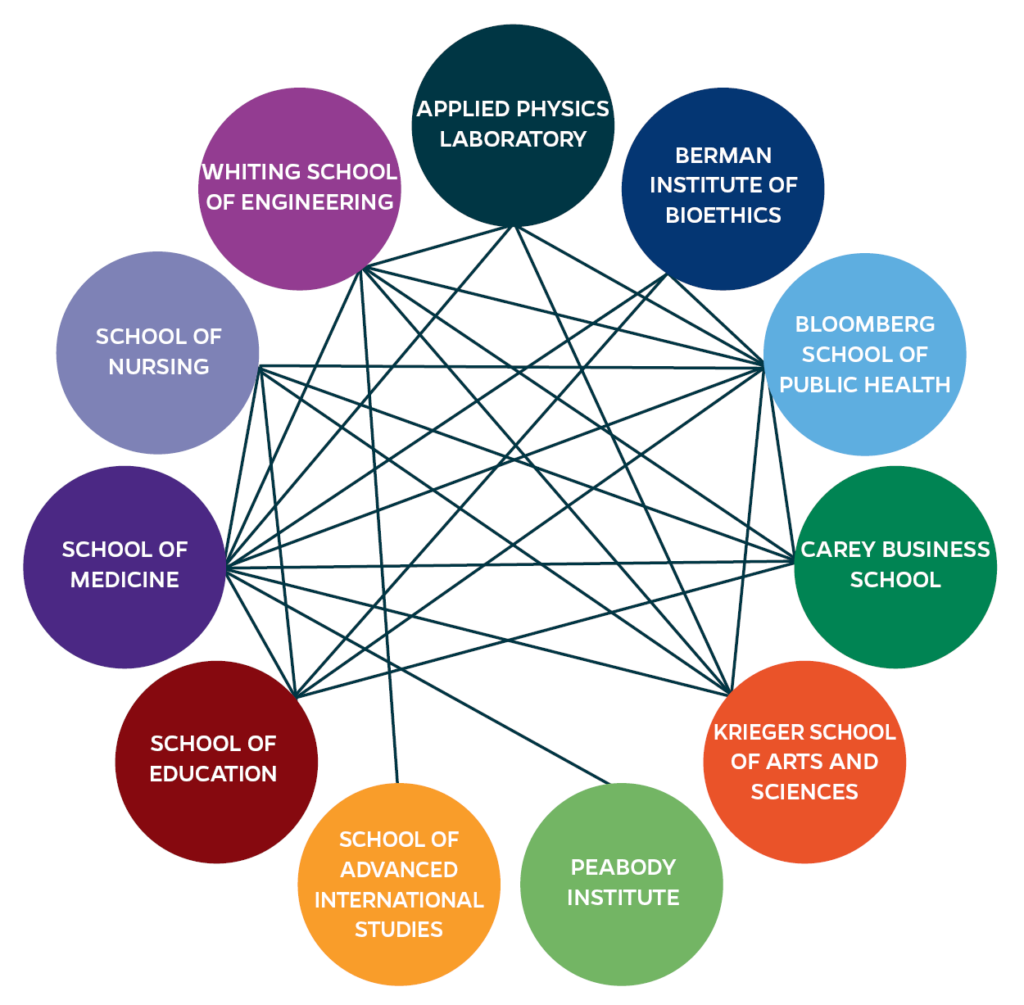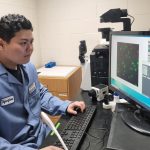INBT Researchers Among Discovery Award Recipients

Story by the Hub
Addressing inequities in access to federal and state benefit programs for people with disabilities.
Locating an immediate relief to rising CO2 emissions using fossil fuels.
Studying the geometry of neural networks to detect bias in artificial intelligence.
These are among 41 multidisciplinary endeavors that have been selected to receive support this year from Johns Hopkins University’s Discovery Awards program. Each project team is made up of members from at least two JHU entities who aim to solve a complex problem and expand the horizons of knowledge.
Altogether, the winning project teams—chosen from a record 274 proposals—include 136 individuals representing 11 Johns Hopkins entities.
“As the past year has shown, the urgent challenges we face as a society require not just daring new approaches, but also cross-cutting, multidisciplinary collaborations,” says Ronald J. Daniels, president of Johns Hopkins University. “This year’s proposals—in number and caliber—demonstrate the extraordinary spirit of innovation and partnership intrinsic to our university. These awards will empower our faculty to work in concert together across our community in pursuit of groundbreaking research and new fields of study.”
The Discovery Awards program was announced in early 2015, as was the Catalyst Awards program for early-career researchers. Together the two programs represent a $30 million commitment by university leadership, along with the deans and directors of JHU’s divisions, to faculty-led research.
The Discovery Awards are intended to spark new interactions among investigators across the university rather than to support established projects. Teams can apply for up to $100,000 to explore a new area of collaborative work with special emphasis on preparing for an externally funded large-scale grant or cooperative agreement.
This year’s record pool of applications also required a significant number of reviewers: more than 70 faculty members from across the university were called upon for their input.
“Discovery Awards have been transformative for the Johns Hopkins community,” says Denis Wirtz, vice provost for research. “These have seeded new research collaborations among faculty in different schools and units of the university, spanning many fields of investigation. The scholarly and financial returns have been remarkable.
Projects that include INBT faculty members include:
Detecting Pathogens with Sugar: A Chemical Amplifier and Glucometer-based Tool for Easy Disease Diagnostics and Surveillance– Dan Siegal (Applied Physics Lab), Leslie Hamilton (Applied Physics Lab), Rebecca Schulman (Engineering)
Development of a Fluidic-based Approach for Purifying Human Stem Cell-derived Retinal Cells for Retinal Transplantation– Claire Hur (Engineering) & Donald Zack (Medicine)
Interrogation of the Impact of Selection and Competition on the Evolution of Human Pancreatic Cancer Precursor Lesions– Elana Fertig (Medicine), Rachel Karchin (Engineering) & Laura Wood (Medicine)
Re-engineering the Nucleosome Core to Study the Asymmetric Histone Code– Cynthia Wolberger (Medicine) & Jeffrey Gray (Engineering)
Regulation of Brain Stiffness by Glia– Dwight Bergles (Medicine) & Luo Gu (Engineering)
Spatially Resolved, Closed-Loop Control of Wound Healing– Netz Arroyo (Medicine), Sharon Gerecht (Engineering) & Rebecca Schulman (Engineering)
The full list of recipients and their projects is available on the Office of Research website.





